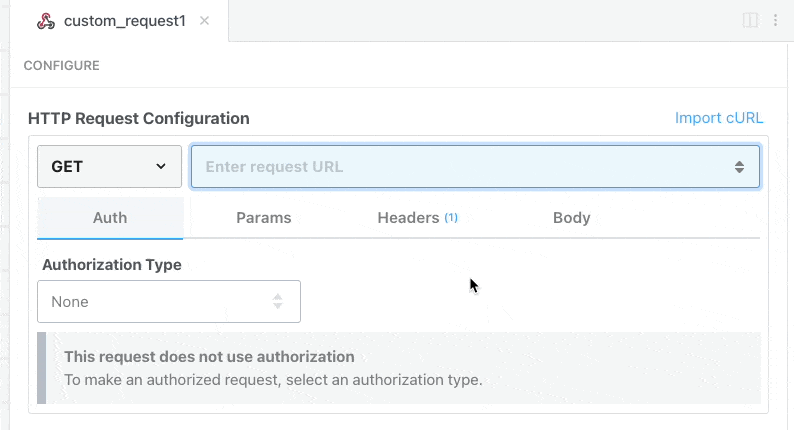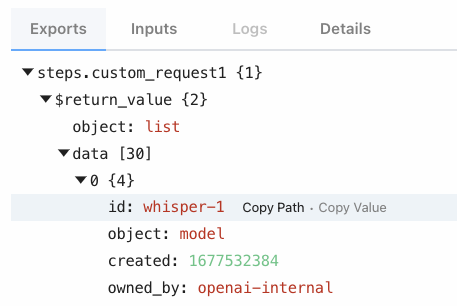What do you want to automate
with HTTP / Webhook and Mailjet?
Prompt, edit and deploy AI agents that connect to HTTP / Webhook, Mailjet and 3,000+ other apps in seconds.
Trusted by 1,000,000+ developers from startups to Fortune 500 companies
Popular Ways to Connect HTTP / Webhook with Mailjet#
Popular HTTP / Webhook and Mailjet Triggers#
Get a URL and emit the full HTTP event on every request (including headers and query parameters). You can also configure the HTTP response code, body, and more.
Get a URL and emit the HTTP body as an event on every request
Emit new event when the content of the URL changes.
Popular HTTP / Webhook and Mailjet Actions#
Add a new unique contact to your global contact list and select its exclusion status. See the docs here
Send an HTTP request using any method and URL. Optionally configure query string parameters, headers, and basic auth.
Retrieve details for all contact lists - name, subscriber count, creation timestamp, deletion status. See the docs here
Send an HTTP GET request to any URL. Optionally configure query string parameters, headers and basic auth.
Send a message via Send API v3. Send API v3 is built mainly for speed, allowing you to send up to 100 messages in a single API call. See the docs here
Overview of HTTP / Webhook#
Build, test, and send HTTP requests without code using your Pipedream workflows. The HTTP / Webhook action is a tool to build HTTP requests with a Postman-like graphical interface.

Point and click HTTP requests
Define the target URL, HTTP verb, headers, query parameters, and payload body without writing custom code.

Focus on integrating, not authenticating
This action can also use your connected accounts with third-party APIs. Selecting an integrated app will automatically update the request’s headers to authenticate with the app properly, and even inject your token dynamically.

Pipedream integrates with thousands of APIs, but if you can’t find a Pipedream integration simply use Environment Variables in your request headers to authenticate with.
Compatible with no code actions or Node.js and Python
The HTTP/Webhook action exports HTTP response data for use in subsequent workflow steps, enabling easy data transformation, further API calls, database storage, and more.
Response data is available for both coded (Node.js, Python) and no-code steps within your workflow.

Connect HTTP / Webhook#
// To use any npm package on Pipedream, just import it
import axios from "axios"
export default defineComponent({
async run({ steps, $ }) {
const { data } = await axios({
method: "GET",
url: "https://pokeapi.co/api/v2/pokemon/charizard",
})
return data.species
},
})
Overview of Mailjet#
Mailjet's API offers the power to craft, send, and track emails with finesse. You can wield it to automate email sequences, synchronize email lists with your databases, and send transactional emails with personalized content. It's a playground for creating tailored email campaigns and dissecting campaign performance with rich analytics.
Connect Mailjet#
import { axios } from "@pipedream/platform"
export default defineComponent({
props: {
mailjet: {
type: "app",
app: "mailjet",
}
},
async run({steps, $}) {
return await axios($, {
url: `https://api.mailjet.com/v3/REST/contactslist`,
auth: {
username: `{{custom_fields.public_key}}`,
password: `${this.mailjet.$auth.secret_key}`,
},
})
},
})
Community Posts#

